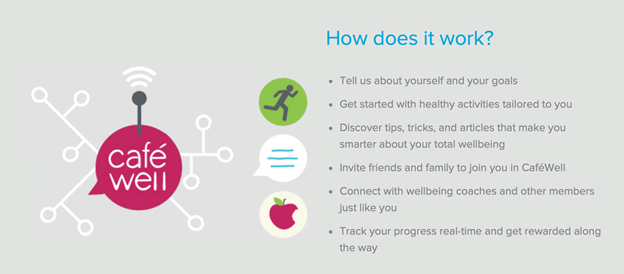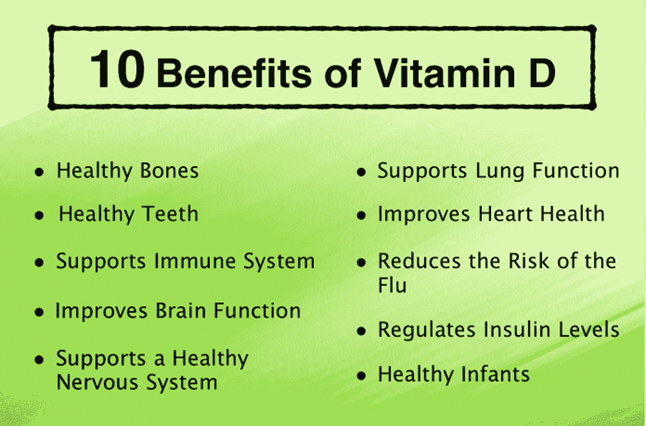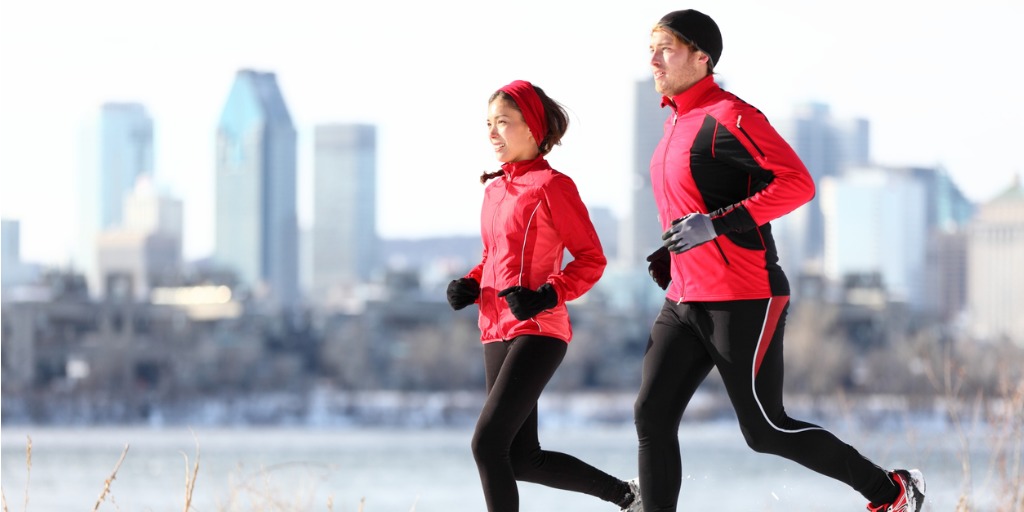Tips for winter wellness
With winter comes shorter days and colder weather—not to mention a general reluctance to eat healthy and exercise. That’s partly because winter is also the holiday season, when we let ourselves eat, drink and be merry more than at any other time of the year. We put together some tips to help you stay fit and well this winter by being more mindful of your diet, exercise, and physical and mental health.
While it’s no surprise many of us tend to neglect good nutrition habits and wellness routines starting with the end of November, a lapse in fitness unfortunately can weaken the immune system, posing a greater risk of developing illness, typically colds and flu. This year we must add COVID-19 to the viral mix, making it even more important to take care of ourselves to prevent the potentially severe complications of simultaneous infections.
During this time of social distancing and growing use of telemedicine, holistic self-care is a safe bet to maintain good health throughout the winter months.
Heathy eating tips
During winter, our holiday spirit typically encourages big feasts, special dessert treats, increased alcohol consumption, and a general cultural relaxation of the rigid rules of a balanced diet. Adults on average gain 1.7 pounds over the holidays, explaining the annual tradition of New Year’s Resolutions to reduce our waistlines. Here are a few ways to avoid holiday weight gain and eat heathier this winter.
Put "Five a Day" on the menu
Eating five servings of fruits and vegetables can go a long way toward protecting your health. Sadly, a CDC survey found that only 18% of adults eat the recommended five daily servings—a percentage that drops even more during winter months.
Fruits and vegetables contain high amounts of antioxidants and polyphenols, such as vitamin C, carotenoids, and flavonoids, as well as high levels of fiber, all of which have been shown to help lower cholesterol, reduce blood pressure, and manage weight. So it’s smart to include them in meals as often as possible.
Since it’s darker and colder depending on your location, you may not have access to the produce options that you did over the summer. However, there are plenty of seasonal winter vegetables you can buy fresh, including beets, Brussels sprouts, cabbage, cauliflower, clementines, collard greens, kale, pears and squash. And don’t overlook frozen and canned options—just steer clear of added fat, sugar and salt.
Curb your cravings
Winter means comfort food, and comfort foods can be high in calories. To counter these cravings, try eating a protein-packed breakfast to keep your energy levels up and feel more satisfied throughout the day. If by afternoon you’re craving sweets or starches, be sure to have healthy snacks on hand, such as nuts, seeds, hardboiled eggs, hummus, or whole wheat crackers. Planning ahead is key!
Go fishing for omega 3s
Omega 3 fatty acids are a healthy fat naturally found in many types of fish, such as salmon, sardines, and tuna. Among the many health benefits of omega 3, studies have shown that they help lower levels of depression—a condition more common during the darker, shorter days of winter.
Exercise tips
The winter months can be a challenging time to stick to a fitness routine. Chilly temperatures, inclement weather and short days make it more difficult to find the motivation to exercise—especially outdoors.
But staying active during the winter is important. Regular exercise helps you maintain or lose weight, reduce stress, improve your quality of sleep, and strengthen your immune system.
Adults who don’t exercise regularly are 57% more likely to contract upper respiratory infections in the winter. Of course, this year that includes COVID-19. The good news is that you don’t need to go to a gym or exercise outside to keep your immune system strong.
Work out in the comfort of your home
If you have no desire to head outdoors for your workout, don’t worry. There are plenty of ways to get exercise right at home in every room of the house. A simple Google search will help you discover dozens of at-home workouts you can adapt to fit your own needs. Many of these online resources are free, including video instruction. Some health plans also include options for live, virtual classes. For instance, AllWays Health Partners’ partner SplitFit offers one on one and group training sessions.
You can also purchase inexpensive jump ropes and resistance bands to increase muscle tone and endurance. Or save money and use full water bottles for arm and chest curls to increase upper body strength.
Be creative—put together your favorite playlist of upbeat music and dance your heart out for a fun break from work. Even household chores can be counted as exercise. Add a little weight with wrist and ankle bands as you vacuum or do the laundry, and you’ll burn even more calories.
Every step counts
Walking is the simplest form of exercise. You don't need to buy a gym membership or take lessons. And the only equipment you need is a good pair of walking shoes.
Walking at a pace of 3 mph counts as moderate-intensity exercise, just the kind doctors and exercise gurus tell us we should do 30 minutes day. Using a pedometer or fitness tracker is a good way to motivate yourself to walk more by trying to achieve a minimum number of steps per day.
A common daily goal is 10,000 steps, which is equivalent to about five miles, depending on the length of your stride. But it's better to start out with a goal you know you can achieve, and then best yourself slowly over time.
How can you add more steps to your day? Take a morning or evening walk as part of your daily routine. Climb stairs instead of using elevators. Walk to neighborhood businesses instead of driving. Pace the room when you’re on the phone. You’d be surprised how quickly those steps add up.
Sign up for a fitness challenge
Targeted, short-term fitness challenges are especially popular during winter months, as more folks are looking for ways to stay motivated. Joining a challenge gives you a reason to get off the couch and get moving. And you’re much more likely to stay on track and not let obstacles derail you when you feel accountable to a goal or to other people.
Fitness challenges come in all shapes and sizes. You can go the individual route and challenge yourself or join a group for a more competitive edge. You can start your own challenge with family members, friends or colleagues or sign up for online challenges, some free, others offered by fitness experts, gyms, and yoga studios.
Don’t forget your health benefits: many plans, like AllWays Health Partners, offer fitness challenge programs through their wellness platform, such as CaféWell from Welltok, which are included with your health insurance plan.
 SOURCE: https://www.cafewell.com/
SOURCE: https://www.cafewell.com/
Physical health tips
As we all know from experience, you’re more likely to get a cold or flu during winter. That’s not because of cold temperatures outside; rather, it’s the inside conditions that promote illness: close quarters and dry, recycled air. With the COVID-19 virus still spreading at critical levels, consider these tips to boost your immune system.
Remember your flu vaccine
It’s certainly encouraging news that COVID-19 vaccines are on the way. But it will be some time before they can be administered widely. In the meantime, don’t forget to get a flu shot—a vaccine that’s also important this winter.
Each year, the seasonal flu sickens millions and causes thousands of hospitalizations and flu-related deaths in the U.S. Getting a flu shot is more critical this year during the pandemic, as the combination of flu and COVID-19 can be much more dangerous together than contracting either one alone.
Take a vitamin D supplement
Vitamin D is essential to keep your body functioning properly and your immune system strong. It maintains normal blood levels of calcium and phosphorus, which strengthen bones, and helps to absorb other important nutrients, such as vitamin A, iron and calcium.
Vitamin D is produced naturally when sunlight is absorbed by the skin. However, from November to April, the angle of sunlight in northern latitudes is insufficient to produce vitamin D, which can lead to a deficiency. And because vitamin D is most prevalent in fish and dairy products, you may not get enough in your diet if you are lactose intolerant or vegan.
Taking vitamin D3 supplements is a good way to ensure you get the minimum daily requirement set by the FDA. At the same time, too much vitamin D can cause adverse effects. Be sure to ask your primary doctor before starting a regular supplement routine.
If you’re looking to increase your intake of foods that contain vitamin D, try salmon, herring, sardines, canned tuna, egg yolks, mushrooms, and fortified foods like dairy and soy milk, orange juice, and cereals.
 SOURCE: https://myhealthonly.net/vitamin-d3-benefits/
SOURCE: https://myhealthonly.net/vitamin-d3-benefits/
Hydrate and humidify
It’s easy to lose track of how much water we’re drinking at this time of the year. During the summer, we focus more on hydration because it’s hot, we’re more active, and we sweat. Nevertheless, drinking enough water is just as important during the winter to help the body's immune system function properly.
Of greatest concern, dry air produced by artificial heat sources can cause cracks in the mucous membranes that line your nasal passages. These openings provide bacteria and viruses greater access, potentially resulting in infection.
Using a saline spray can keep nasal passages hydrated and flush out bacteria and viruses. You can also install a humidifier to add moisture to the indoor air, which can keep mucous membranes from drying out during the night while you sleep.
Mental health tips
It’s been scientifically proven that the cold, short, dark winter days can worsen depression. And this year, as our holiday celebrations are compromised by the pandemic and social distancing keeps us apart from family and friends, many of us may suffer a decline in overall emotional wellbeing.
An estimated nine million Americans are chronically affected by Seasonal Affective Disorder (SAD), a medical condition caused by lack of regular sunlight. SAD is significantly more common in women than men, and should be taken seriously, since it can be very debilitating.
SAD aside, whenever we’re feeling more depressed or anxious than usual, especially over long periods, we become more susceptible to illness. Stress can negatively affect your musculoskeletal, respiratory, cardiovascular, endocrine, gastrointestinal, and nervous systems. Fortunately, you can use many self-care methods to manage stress. Here a few tips to help you relax.
Practice meditation
When you start to feel the winter blues, meditation, mindfulness and deep breathing are proven practices to help you relax. Meditation decreases cortisol, the hormone contributing to the fight-or-flight stress response that triggers stress and anxiety.
You can access a variety of stress management apps online, such as Headspace and Simple Habit, that offer meditation routines to suit your personal needs. Check out our blog post for a list of our favorites.
Sip herbal teas
Along with water, herbal teas are another good source of winter hydration. Even better, they’re tasty and can also support mental health. Herbs like lemon balm, peppermint, and valerian can ease depression and anxiety by calming nerves and relaxing your body. They can also help you sleep better. For the greatest benefit, look for organic teas made from high-quality ingredients.
Get some (artificial) sunlight
If early sunsets and long hours of dark, cloudy days are taking their toll, you may want to look into a sun lamp or light therapy box. Sun lamps are commonly used to tread SAD and other conditions like sleep disorders. These lamps have a positive effect on your body’s melatonin production, which helps regulate your sleep cycle, and serotonin, a mood-regulating hormone. While no prescription is required to purchase a sun lamp, it’s still a good idea to consult with your health care provider to understand what type of light would be most helpful for you and how often you should be using it.
For additional tips to maintain physical and mental health this winter season, please check out our previous posts about getting quality sleep, reducing stress, and quitting smoking, Enjoy the holidays, and stay well!
